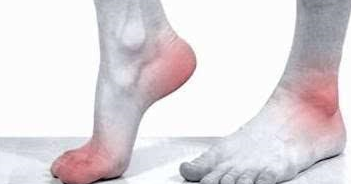High uric acid, gout coming? Don’t worry! 6 types of foods help uric acid naturally “subside”
With improved living conditions, not only can you maintain warmth and fullness, but you may also end up eating too much protein-rich foods. High uric acid is no longer just a disease for the elderly; many young people, including office workers, also experience high uric acid levels during medical check-ups.
What is uric acid? What harm does high uric acid pose to the body?
Uric acid is a metabolic byproduct produced after the breakdown of purine nucleotides in the body. Generally, after the production of these uric acids, about two-thirds are excreted through the kidneys, while the remaining one-third is excreted through the large intestine. Uric acid is continuously generated and excreted in our bodies every day, maintaining a certain concentration in our bloodstream. When uric acid accumulates in the body and cannot be excreted, the body experiences hyperuricemia, during which uric acid and uric acid salt crystals may precipitate at the joints, leading to the occurrence of gout.
High uric acid levels pose significant risks, as they are the main cause of gout in the body. To treat the disease effectively, you need to address the root cause. Do you know what causes high uric acid levels?
There are 4 main reasons for high uric acid levels in the body:
1. Uric acid is a byproduct of purine metabolism. When there is a defect in the metabolic process enzymes, it accelerates nucleic acid breakdown, leading to an increase in uric acid;
2. Consuming excessive purine-rich foods, such as pickled products;
3. Reduced excretion; decreased excretion due to kidney function issues;
4. Reduced internal metabolism: reduced endogenous uric acid destruction;
If foods can cause high uric acid levels, can they also promote uric acid excretion? These types of foods are effective and useful.
(1) Drink soda water appropriately
People with high uric acid levels can drink pure soda water appropriately daily, which can help in uric acid excretion. However, those with impaired kidney function should avoid it.
(2) Increase consumption of fruits and vegetables rich in vitamin C
Research has shown that vitamin C aids in uric acid excretion. However, during gout attacks treatment, reduce vitamin C intake, as it can diminish the analgesic effect of colchicine in the body. Fruits rich in vitamin C include oranges, tangerines, grapefruits, kiwis, etc.
(3) Choose foods rich in potassium
Potassium can reduce the precipitation of uric acid in the body and promote its excretion. Foods high in potassium include bananas, shiitake mushrooms, celery, bean sprouts, seaweed, etc.
(4) Increase daily milk intake
Dairy products have a protective effect against hyperuricemia; they can help in uric acid excretion and have anti-inflammatory functions. It is recommended that individuals with high uric acid levels drink 300-500ml of milk daily.
(5) Eating more cherries helps alleviate gout
Clinical studies have shown that cherries contain effective components in preventing gout attacks. Gout patients can eat some cherries appropriately every day to effectively alleviate gout symptoms.
(6) Increase tea consumption or drink coffee
Green tea and coffee can effectively promote the excretion of excess uric acid from the body. However, remember that coffee contains caffeine; do not drink too much in a day – 1-2 cups are sufficient. Also, avoid excessive consumption of tea drinks to avoid drinking strong tea.


